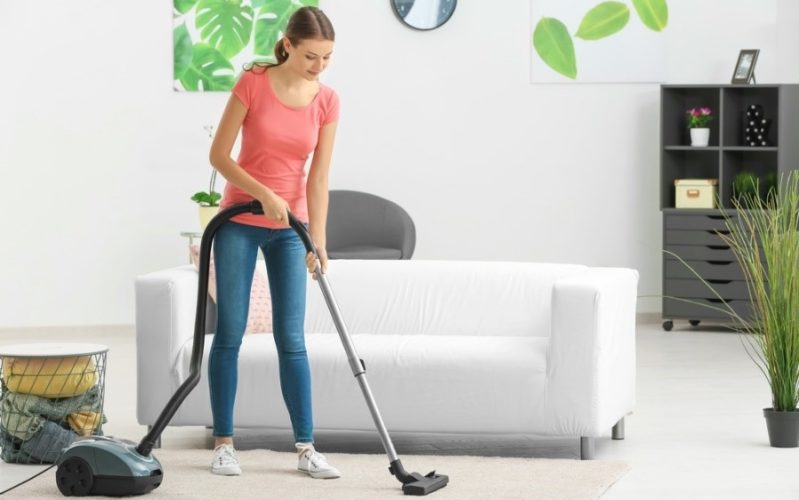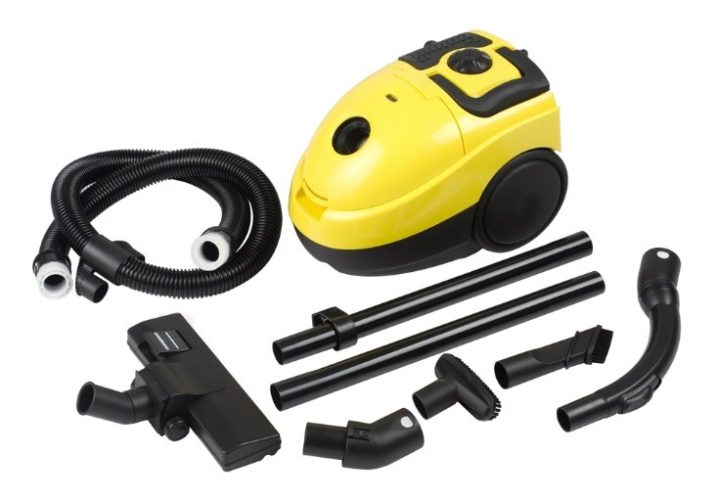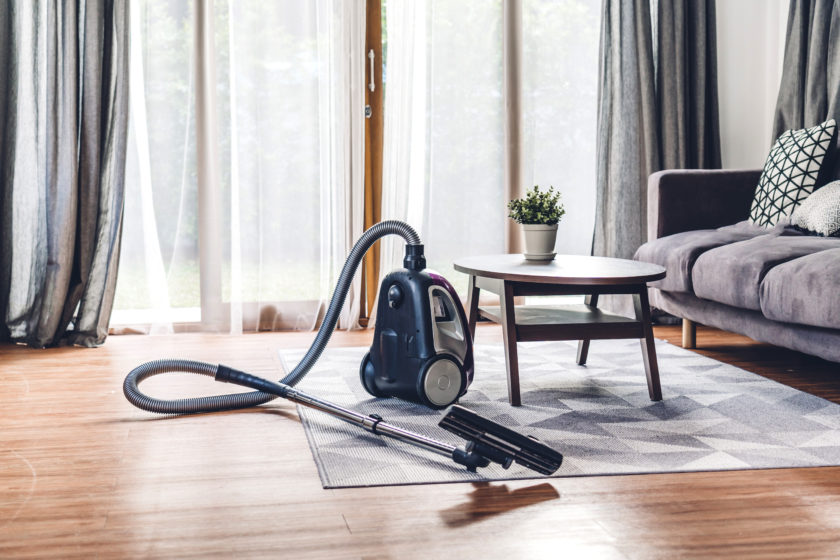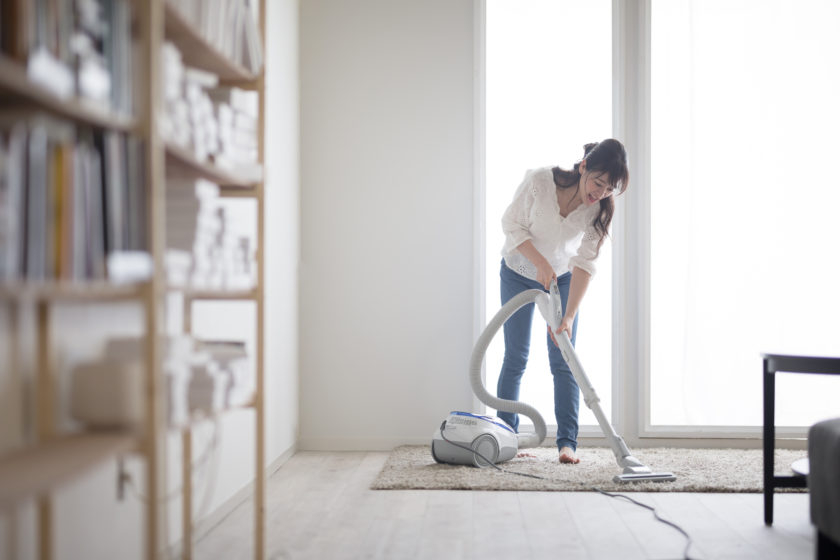 If you notice your vacuum smoking for the first time, it’s understandable why this may seem alarming. Many vacuums are highly durable, and in most cases, smoke isn’t a serious issue, though this should be ruled out quickly to prevent further possible damage to the vacuum. If you notice any of these signs, it’s essential to immediately shut off your vacuum cleaner, unplug the device, and investigate further:
If you notice your vacuum smoking for the first time, it’s understandable why this may seem alarming. Many vacuums are highly durable, and in most cases, smoke isn’t a serious issue, though this should be ruled out quickly to prevent further possible damage to the vacuum. If you notice any of these signs, it’s essential to immediately shut off your vacuum cleaner, unplug the device, and investigate further:
- You detect a smoke odor or burning smell from the vacuum cleaner, even if the smoke is not yet visible
- The smoke alarm in your home goes off, which can indicate an issue with the vacuum cleaner
- There’s white smoke, accompanied with or without a smoke smell
- Blue smoke, or smoke particles
- The scent of burnt rubber
- Soot or similar residue in and around the vacuum hose, brush roller, or other parts of the vacuum cleaner
Causes of Vacuum Cleaner Smoking
While the mechanisms in your vacuum are designed to work together to remove dust, dirt particles, and debris from your floors, a smell or sign of smoke may indicate that one or more components are not working. If you encounter a burning smell or smoke coming from your vacuum cleaner, there are a few underlying reasons to consider.
Motor Problems that Require Repair or Replacement
Motor issues may produce a burnt rubber smell, along with smoke, which a professional repair center should assess. If your vacuum cleaner is currently under warranty, contact the customer service department to determine which steps to take.
Broken or Worn Vacuum Belt
One of the top culprits for causing smoke is a broken vacuum belt resulting from overheating. It’s crucial to check by shutting off and unplugging the vacuum cleaner and determining if the belt is intact. If the belt isn’t damaged, you may find carpet fiber, hair strands, or bristles from the brush roller, which may be stuck in the belt. If you can remove the debris, you can plug the vacuum back into the outlet and continue using the device.

A Build-up of Dust and Debris in the Vacuum Hose or Dust Bag
The vacuum bag, accumulated dust, or fine particles in various machine parts may create a burning smell and smoke. An unchanged dust bag is often the most common reason for smoke, as some of the extra dust may flow into other parts of the machine.
Clogged Air Filter
A clogged air filter is another reason for creating smoke or a strong odor from your vacuum. It’s important to review your vacuum’s manufacturer manual and instructions on how to maintain all the parts best so that you can prevent possible repairs or replacing parts, which can prove to be expensive.
Preventative Measures for Your Vacuum Cleaning
Regular maintenance of your vacuum cleaner is key to preventing failing parts, collecting debris, and slowing the suction process, leading to breaking down and repairs. The most important ways to keep your vacuum in the best working order:
- Change your vacuum dust bag often to avoid a build-up of dirt particles and debris.
- Install an air purifier to improve air quality, which is best to use after your vacuum is smoking, which can linger (both foul odor and smoke).
- Check the brush roll, suction strength, vacuum hose, and other parts of the machine to determine any signs of damage or wear and tear.
- Take note that any stains or oil mist residue on or near the vacuum may indicate a leak, especially if there’s a spot on your carpet or flooring.
- Prevent possible further damage to the vacuum pump, hose, and other machine components by having the machine assessed if you cannot find a source for the smell, smoke, or noise.
- Inspect and clean the vacuum hose using warm water, white vinegar, baking soda, then rinse thoroughly and hang to dry before connecting for further use.
Bottom Line
When you encounter an issue with smoke from your vacuum cleaner, it’s essential to pinpoint the cause quickly, to prevent further problems. Before you diagnose the reason for smoky residue and odor, you’ll want to check the vacuum, starting with the belt first, the dust bag, hose, and other components, including the motor. If all signs indicate a failed motor, you’ll need to contact your vacuum’s manufacturer or a professional repair company for further assessment and a solution.
Regular care and maintenance are ideal for keeping your vacuum cleaner in its best working condition for years past its warranty. You’ll find that the most straightforward measures taken, and monitoring your vacuum’s performance, is key to preventing a vacuum leak, dust build-up, and broken parts.
It’s standard to vacuum once or twice weekly, though more frequent use may increase the wear and tear of the machine. While regular wear is expected over time, you can prolong the lifespan of your vacuum with proper care.

